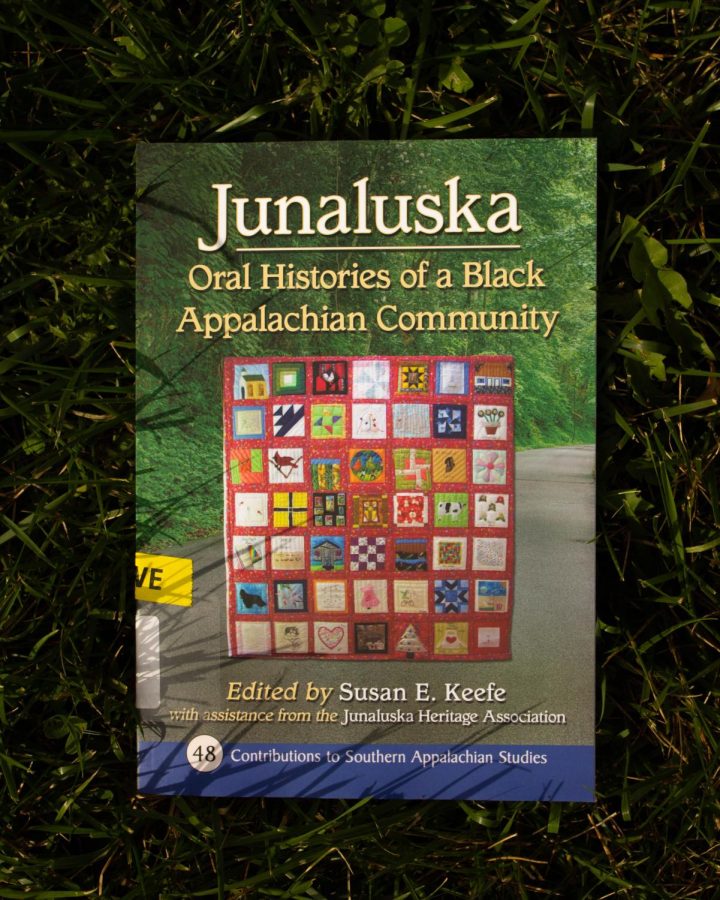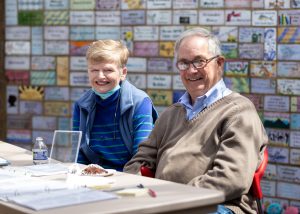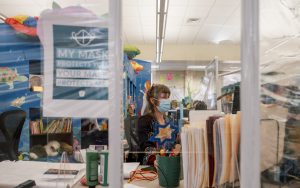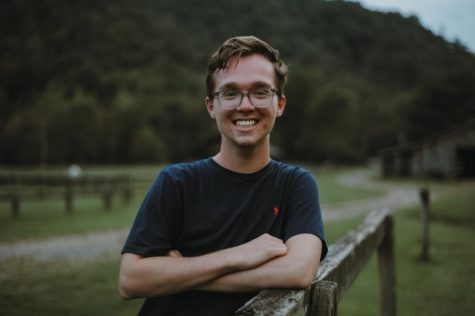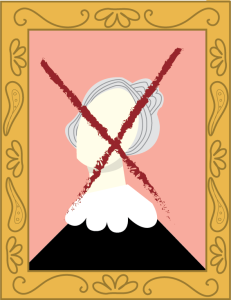Boone Reads Together recognizes Junaluska oral histories
“Junaluska: Oral Histories of a Black Appalachian Community,” App State’s Common Reading book this year.
September 11, 2022
The Watauga County Public Library hosted its fourth Boone Reads Together book talk Saturday, celebrating Boone’s 150th anniversary.
Boone Reads Together is a bi-monthly library event held throughout the year to reflect on certain literature written by or about community members in Boone.
“Junaluska: Oral Histories of a Black Appalachian Community” was chosen for the library’s September selection.
Susan Keefe, professor emerita of anthropology at App State, co-edited the book by collecting numerous oral histories from members in the Junaluska community. Alongside Keefe was a representative of the Junaluska Historical Association and member of the Junaluska community, Roberta Jackson. Jackson spoke on the importance of the book in the development of projects and raising awareness of the existence of Junaluska.
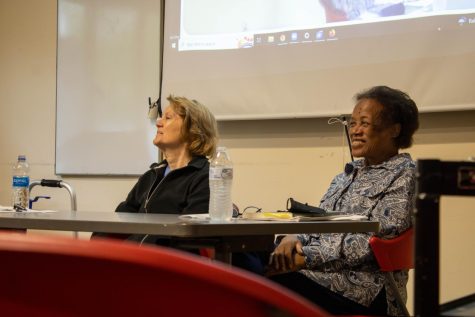
“I think people realize now the importance of our community and the people there so to have the library want us a part of Boone Reads Together has been great,” Jackson said
Jackson said she appreciates the work of the book by creating a permanent record of the impact Junaluska has had on the town of Boone.
“It lets us know that we as people have contributed to the town and just life as general,” Jackson said.
Monica Caruso is a county librarian with the Watauga County Public Library and has helped organize the Boone Reads Together events throughout the year. Caruso said there were many reasons the library chose “Junaluska: Oral Histories of a Black Appalachian Community” for Boone Reads Together.
“It’s such a rich history right behind the library, proximity wise,” Caruso said. “What’s great about the book is that you can flip through it to see what interests you and learn more about it.”
Kicking off the event, Keefe gave a few brief remarks on the importance of the book in Boone as well as in her personal life. Since publishing in June 2020, the book has sold over 6,000 copies.
“It was such a beautiful story to help tell,” Keefe said. “Backed by their Mennonite heritage, these people choose to embrace love and compassion.”
After Keefe’s remarks, a brief video was played showcasing stories included in the book. Many discussed the segregation of the schools throughout Watauga County which eventually integrated to become Watauga High School.
The video also displayed the ways in which members of the Junaluska community were able to bond with each other. One such way was through the Mennonite Brethren Church’s youth group which met every Sunday night and acted as a place for fellowship among the Junaluska.
Lynn Patterson is Roberta Jackson’s daughter and has been working with App State’s library since 2001. She said she believes the book is important in revitalization of the “rich” oral history of the Junaluska community.
“If you know my story and I know your story, the likelihood of us hating each other on sight or not understanding where one another is coming from goes away,” Patterson said.
As well as its inclusion in Boone Reads Together, “Junaluska: Oral Histories of a Black Appalachian Community” has been named App State’s common reading book for the academic year.
“It gets our name out there so much quicker,” Patterson said. “We’ve been doing this work since 2009 and just in this one instance by being chosen our name has been recognized so much more.”
Patterson said she has seen the book energize Boone and Watauga County in recognizing Junaluska and allowing them to complete older projects and take on new challenges.
“It brings us and gives us a voice and a permanent seat at the table, so we couldn’t ask for a better result than that,” Patterson said.
Junaluska is working on creating a historic designation for the community where many of its members live. This designation will prevent new land developments and renters from moving in and taking over the area, Jackson said.
“Many of the people that would come back and live in the community that they grew up in can’t afford to do it now,” Patterson said. “So it’s really about making the people that want to come back have the chance to.”
Recently, “Junaluska Oral Histories of a Black Appalachian Community” was cataloged in the Library of Congress for a permanent record.
“Just to know that we’re here and that people know that we’re here and are making a difference in this community is huge and it’s worth everything that we are doing,” Patterson said.
Many oral recordings of history can be lost to time; having the chance to store the history in a place that is so permanent means Junaluska cannot be ignored by anyone, Patterson said.
“Oral histories are a big thing and we need to make sure that they are kept and so people know who we are and that we’re here so there is no way better to do that than to record it and put it down somewhere,” Patterson said.

